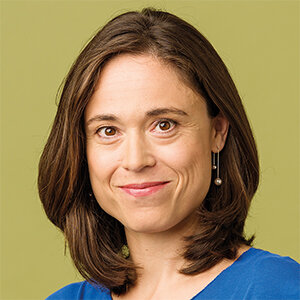Jeffrey Sanchez-Burks
William Russell Kelly Professor of Management, Faculty Director of the +Impact Studio
Why this course
In his studio curriculum, Professor Sanchez-Burks purposely breaks down many traditional and long-standing silos within business education by utilizing cross-disciplinary teams and weaving together frameworks and research from anthropology, social psychology, sociology and industrial design in order to develop holistic solutions
As the interconnected-ness and complexity of our global society becomes more evident, this experiential design course gives students the practical experience to think broadly and systemically while effectively breaking down organizational boundaries
Course Trailer
Course Highlights
To address "wicked problems" such as the UN SDGs, teams explore leverage points between university-generated intellectual capital and opportunities to build a sustainable solution to an unmet need at scale.
Learning outcomes:
Upon successful completion of this course, students will be able to:
Apply a systems approach to identifying stakeholders and how they are connected within a network
Conduct ethnographic qualitative research
Surface implicit emotional and behavioral needs among stakeholders
Generate composite personas
Conduct bricolage-ideation sessions
Engage in iterative prototyping
Build a Business/Mission Model Canvas
Latest Coverage
Biography
Dr. Jeffrey Sanchez-Burks is a Behavioral Scientist and Professor of Management and Organizations at the Stephen M. Ross School of Business at the University of Michigan. He currently serves as the Faculty Director of the Ross +Impact Studio. He received his Ph.D. in Social Psychology with training in Cultural Anthropology from the University of Michigan. Previously, he has had visiting appointments at universities in Singapore, France, Russia, and Turkey. His research broadly focuses on social-emotional dynamics that shape the collaborative design of innovations and strategic change. Jeffrey was born in San Francisco, raised in Los Angeles, and lives in Ann Arbor.


































![Rotman Crest - black(for White backgrounds)[1].png](https://images.squarespace-cdn.com/content/v1/5ddbe3e83ad7035a263222ae/1600124504158-CABZ29M95HP96XRZ7ZF8/Rotman+Crest+-+black%28for+White+backgrounds%29%5B1%5D.png)

